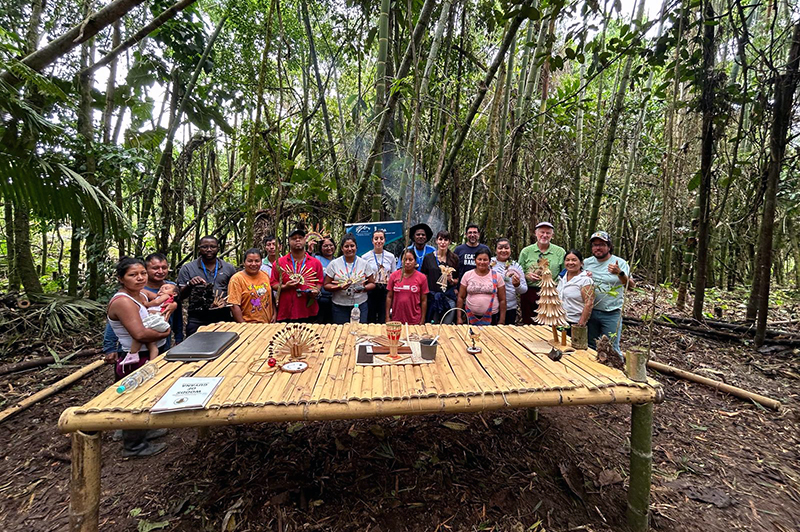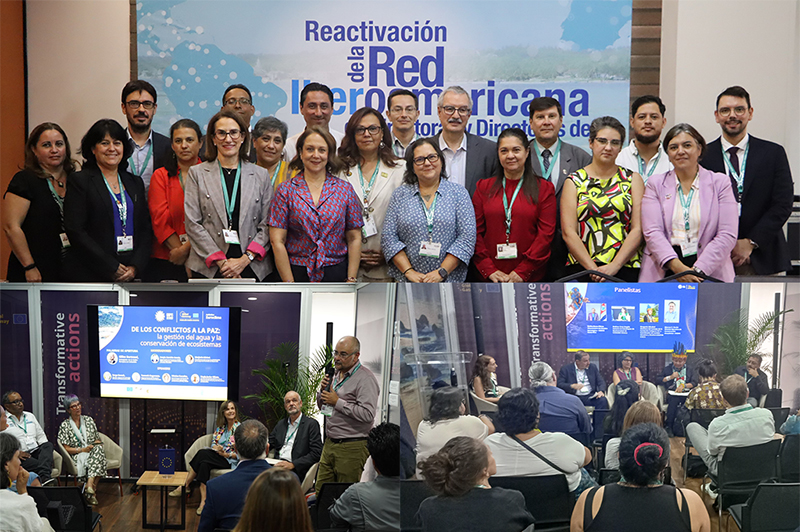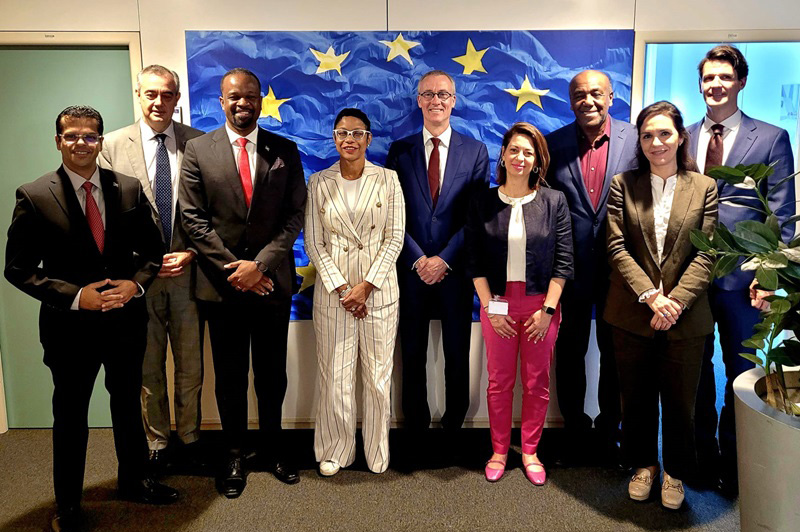Santiago de Chile, April 24, 2018. In Santiago de Chile, the first training course on capacities for the implementation of projects under the framework of climate governance is being held in a workshop where public officials and civil society experts can strengthen their capacities for the implementation of climate projects.
The course, organised by the Instituto Mora under the framework of the Climate Governance component of the EUROCLIMA+ programme as part of the approach to strategic competency development implemented by GIZ, will be held in the Manquehue Hotel from April 24 to 26, bringing together more than 25 participants from 6 Latin American countries.
"This course will provide key actors in the region with methodological tools for the implementation of climate projects, which will help to translate the commitments adopted by the countries in the Paris Climate Agreement into projects with real impacts," says Silvia Brugger, the person responsible in GIZ for the Climate Governance component of EUROCLIMA+.
"The course is the first in a series of three training courses that will take place in Santiago de Chile, Buenos Aires and Mexico City," says Citlali Ayala Martinez, project coordinator at the Instituto Mora. "The training combines both classroom and virtual learning modalities based on practical cases proposed by the participants who commit to replicate the process in their respective projects.
The next training courses will be held from May 14 to 16 in Buenos Aires, Argentina and from May 28 to 30 in Mexico City and are aimed at public officials or representatives of civil society organisations or the private sector, with experience as an executor or coordinator of climate project implementation.
The training course in Santiago de Chile will be inaugurated by Ruth Bajada, Head of the Political, Press and Information Section of the European Union Delegation in Chile and by Rodrigo Benítez Ureta, Undersecretary for the Environment in Chile’s Ministry of the Environment.
More information:
Silvia Brugger, GIZ silvia.brugger@giz.de
Citlali Ayala Martínez, Instituto Mora competenciasclima@institutomora.edu.mx
General press contact for the EUROCLIMA+ programme
Alexandra Cortés Mora
alexandra.cortes@euroclimaplus.org / Skype: alexandra_cortes / www.euroclima.org
EUROCLIMA+
The EUROCLIMA+ Programme is a European Union-funded programme that offers a wide range of specialised services aimed at supporting the implementation of the Paris Agreement commitments in the area of climate governance, and financing, and technical assistance for the implementation of projects with Latin American countries in: forests, biodiversity and ecosystems; disaster risk management and reduction; urban mobility; resilient food production; water management with an urban resilience perspective; renewable energy, and energy efficiency.
The action of the EUROCLIMA+ components is executed by the following implementing agencies: Spanish Agency for International Development Cooperation (AECID), French Development Agency (AFD), Economic Commission for Latin America (ECLAC), Expertise France, International and Ibero-American Foundation for Administration and Public Policy (FIIAPP), German Society for International Cooperation (GIZ) and UN Environment.
Instituto Mora
The Instituto Mora is a public research centre in Mexico that belongs to the National Council of Science and Technology. It is recognised in the academic world for excellence in its research on history and social sciences, as well as for the quality of its postgraduate courses and the richness of its collections.
Its work revolves around research and teaching, and in recent years it has developed management and consulting skills linked to development problems and their study and discussion. It has also generated training and updating activities on practical aspects of cooperation for development, its implementation, highlighting the importance of the link between various actors in development.




